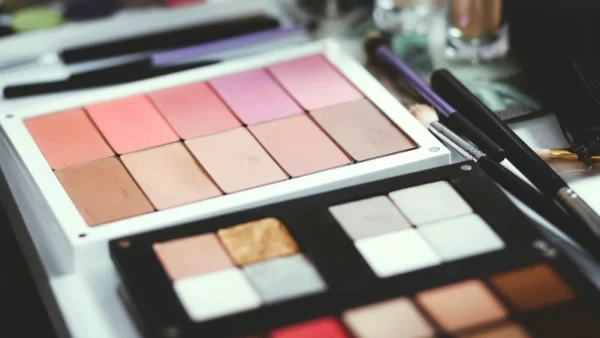Disclosure: This post may contain affiliate links, meaning we get a commission if you decide to make a purchase through our links, at no cost to you. Please read our disclosure for more info.
Last Updated on July 3, 2024 by Shopping Kim
Sadly, most of us have become much too naive when it comes to our favorite make-up brands. After all, we are naturally inclined to trust corporations when they tell us their products are healthy and safe to use.
However, regardless of a company’s penchant for flashy packaging and enticing ads, you should not be tempted to look the other way when it comes to the all-too-common practice of potentially toxic ingredients.
Some brands are transparent about what they supply and what the important uses for chemicals are for in hygiene products. But other companies may not be so forthcoming. You might find some eye-opening statistics that have you immediately purging your make-up case. Here are some ingredients to watch for.
In This Post:
Fragrance
Sure, it can be invigorating and uplifting to leave the house smelling good, but that is what perfume is for. And, while fragrance is not an essential ingredient for most cosmetic products, it is usually added to increase the appeal of certain products.
Unfortunately, these synthetic scents can be hazardous to your general health.
Since these chemicals are often labeled simply as generic “fragrance”, it can be especially difficult to determine what type of chemicals you are exposing your body to during use.
Some have even been known to cause respiratory issues, headaches, and dizziness. Women with sensitive skin, such as those who are suffering from eczema or psoriasis, can also experience inflammation and irritation due to their respective conditions.

Avoid: Diethanolamine (DEA), Triethanolamine (TEA)
DEA and TEA are common compounds typically used as foaming agents in creams and certain cleansing products. While they have been long-suspected of being the primary causes of eye irritation, drying of the skin, brittle hair, and many allergic reactions in those using such products, recently, they have also been proven to cause cancer in lab animals. If these dangerous chemicals are absorbed by your body over a period of several years, they can become extremely toxic.
Avoid: Phthalates
Phthalates, found in many personal care products and plastic compounds, are dangerous chemicals that should not be placed anywhere near human skin. These agents have been suspected of acting as reproductive toxicants and endocrine (hormone) disrupters, and can seriously affect future fertility. Though they are still being tested for such effects, it is best to stay away from them in the meantime.
Avoid: Parabens
Ethyl, Propyl, Butyl, and Methyl Parabens are some of the most commonly used preservatives in your everyday cosmetic products and are put in to limit the growth of microbes and extend shelf life.
Unfortunately, the FDA warns that in addition to skin rashes, allergic reactions, and hormonal interference, parabens have also been found in human breast cancer tumors, according to preliminary research. These chemicals are commonly found in mascara, as well as anti-aging creams, moisturizers, and foundations.

Today there is a wide variety of potentially dangerous agents that can be found in the personal beauty products you use daily. Remember your skin is your body’s largest organ and is porous and absorbent. What you put on it is just as crucial as the nutrients you ingest orally. So, if you take the extra time to eat healthy food, there is no reason for you not to extend the same caution when purchasing and applying topical beauty products.

